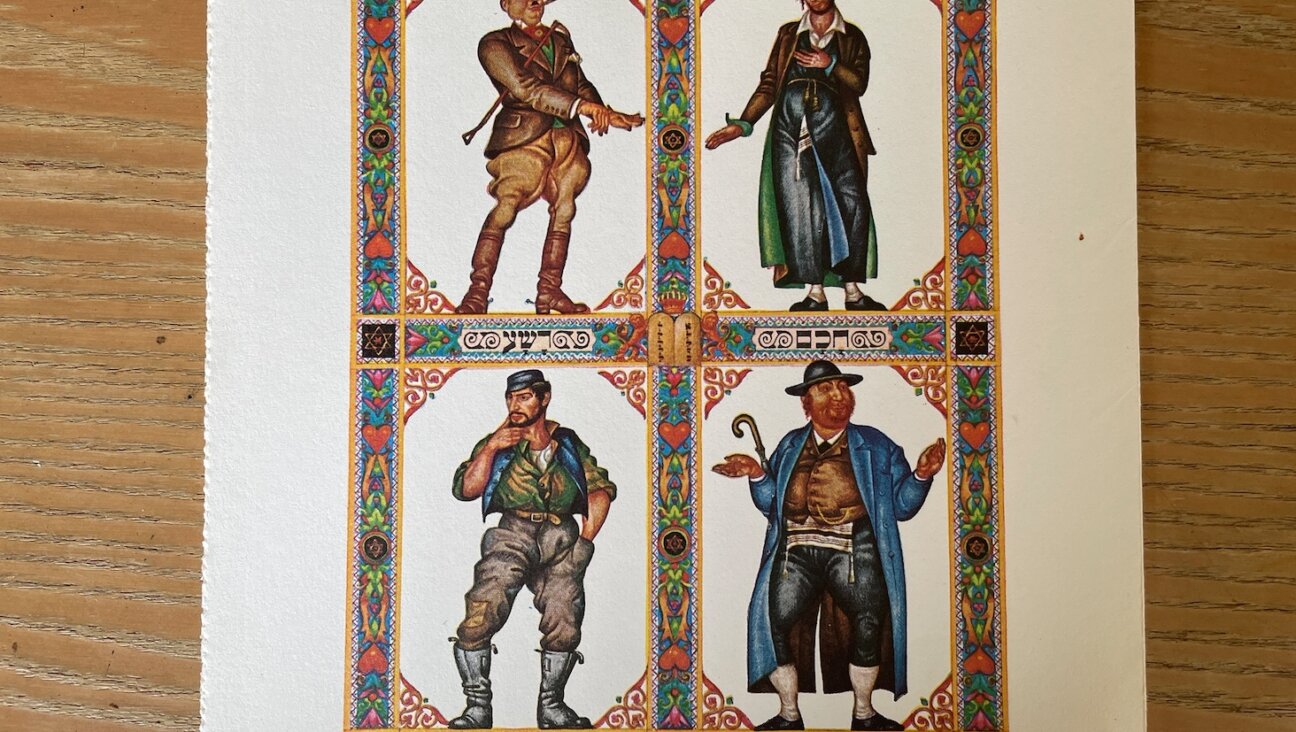How Will I Get Through the Passover Seder Without My Mother?

Image by Anya Ulinich
What gets transmitted at the annual Passover seder meal? Many spoken words, no doubt, but more importantly, many unsaid messages. Many formative memories that can never be recorded except in the haggadah of the mind and heart.
For me as a new mourner, those spoken and unspoken memories have been flooding my consciousness for the past month. At our family’s seders, there will be much talk of our children’s “bubbe” and the many years she made the trek to be here with her beloved grandchildren. Our kids, now grown and pursuing their own adult lives, will no doubt continue the narrative of reminiscences they began at her graveside thirty days ago. I imagine an oral family haggadah emerging at the table, filled with humor and reflection and the “Torah” she taught us through her words and her struggles.
My own most poignant Passover memory of my mother will come after the meal is over and everyone has gone home or to bed. That was the time when she and I would stay up until well past 2:00 a.m. washing the glasses by hand. “They can’t go in the dishwasher, Les,” she would always insist, and that was the opening for us to repair to the kitchen and begin our hour of washing, drying and schmoozing. Every water glass, wine glass, Kiddush cup and Slivovitz shot glass had to be done separately. She dried each glass in a way only she could, with her long-fingered mottled hands.
It made for plenty of time to recall the seders of my childhood and hers; to catch up on the rest of the family and remember those of blessed memory; to critique the kids’ present courses of action as their young lives were rapidly unfolding, and simply to be together in a way that would inevitably end. We both knew it. She would say so, though I would not. “I’m getting old. I’m already old. I’m old-old.” Indeed she was. And indeed that precious chapter has now concluded.
My mom died in a gute sha’a, for sure — literally, “in a good hour,” or, more idiomatically, at an appropriate time in the course of life. She was 93. She lay in her own bed, unattached to tubes and wires, cared for by hospice professionals and surrounded by her children. Her family photos adorned the walls and shelves around her. Shabbat morphed into Saturday night and onward toward dawn. Our songs and poems multiplied like the words of a hodgepodge family seder. We held her long-fingered hands. We left her for a good hour or so. She died. We returned to finish the “seder,” singing and reading and talking to her even as she passed to a place whose very existence we can’t vouch for, much like our ancestors going forth from Egypt to a promised land of doubtful historical veracity.
Only now, as the seder approaches and I personally set the myriad glasses on the table, do I realize that the gute sha’a was the good hour we spent in the kitchen in the middle of the night, as dawn approached and we washed and dried each and every glass.
Lester Bronstein is a rabbi in White Plains, New York.

I hope you appreciated this article. Before you go, I’d like to ask you to please support the Forward’s award-winning journalism this Passover.
In this age of misinformation, our work is needed like never before. We report on the news that matters most to American Jews, driven by truth, not ideology.
At a time when newsrooms are closing or cutting back, the Forward has removed its paywall. That means for the first time in our 126-year history, Forward journalism is free to everyone, everywhere. With an ongoing war, rising antisemitism, and a flood of disinformation that may affect the upcoming election, we believe that free and open access to Jewish journalism is imperative.
Readers like you make it all possible. Right now, we’re in the middle of our Passover Pledge Drive and we still need 300 people to step up and make a gift to sustain our trustworthy, independent journalism.
Make a gift of any size and become a Forward member today. You’ll support our mission to tell the American Jewish story fully and fairly.
— Rachel Fishman Feddersen, Publisher and CEO
Join our mission to tell the Jewish story fully and fairly.
Only 300 more gifts needed by April 30






















